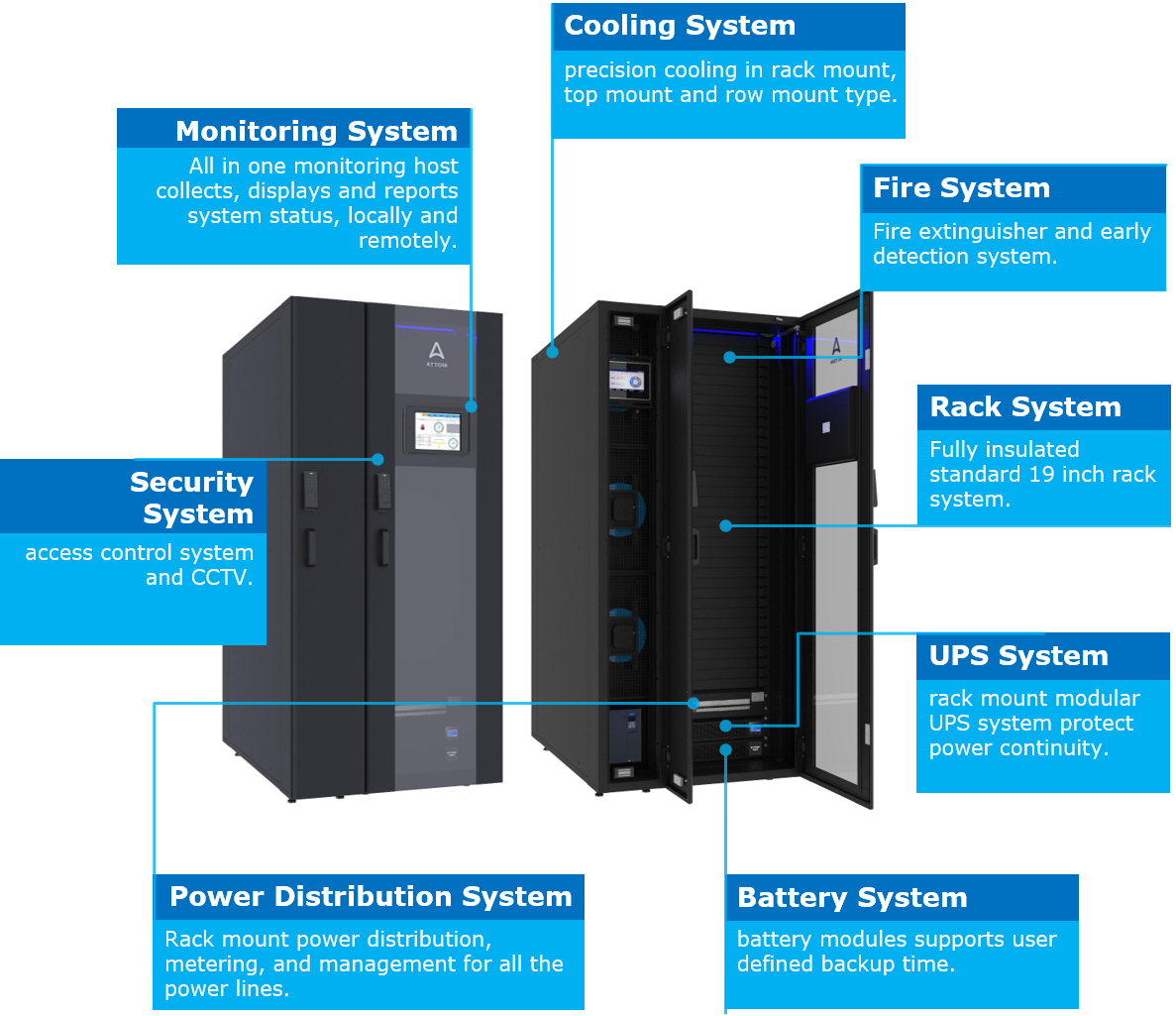When people think about the data center, they always think that in a very large building. There are a lot of cabinets neatly arranged, cabinets filled with servers, and servers are shining positive light. It looks cool.
A data center is a dedicated space within a building, or a group of buildings used to house computer systems and associated components, such as telecommunications and storage systems.
What is Micro Data Center?
Micro data center is a small version of conventional data center. Typically, most micro data centers have the same components as data centers (including cooling, power, IT equipment and other facilities) – but these are integrated into one or more cabinet-sized units.

Micro data centers can be deployed on their own, and at the edges of network in small offices, warehouses, smart factories and other remote sites for local data storage and communication. More often they are part of the architecture of large data centers, depending on the actual business needs of an enterprise organization.
It is expected that the global market for micro data centers will grow to $14.5 billion by 2025 [source].
More and more enterprises are using micro data centers to deploy edge computing applications. As the computing power moves from cloud to edge, and from centralized connectivity architecture to distributed connectivity architecture, the micro data centers are playing a significant role in the transition.
At the same time, many organizations are busy actively consolidating their large and complex data center deployments to reduce costs, and simplify the management of the data center. Having the micro data center as a supplemental infrastructure to the central data center is a practical strategy for most of the business.
What is the Advantages of Micro Data Center
- Lower deployment costs. Micro data centers have the characteristics of prefabrication, standardization and modularization. Their deployment is much simpler and more flexible than traditional data centers, saving a lot more extra on-site engineering cost, which makes micro data centers more cost-effective.
- Faster deployment time. Once the components are selected, the micro data center can be rapidly manufactured and shipped, and can be put into use on site through simple connections. On the contrary, after choosing or building a traditional data center, it takes longer to order hardware and install it.
- Higher reliability. The micro data center has the characteristics of prefabrication and standardization. The traditional data center engineering content is processed by the same manufacturer from design to manufacture. After unified test and verification in the factory, it can be shipped to the site for use. It can achieve plug and play, safe and reliable.
- Easy to install and manage. On-site plug-and-play or simple connection can be put into use, the installation of micro data centers will be much simpler than traditional data centers. At the same time, comprehensive monitoring measures + one-stop after-sales service make its post-management easier.
Micro data centers with these advantages are a viable and attractive choice for data center managers.
Where are the Application Industries?
- Key business branch. Data and IT applications at key branch will be more and more, and micro data center products will be used to meet the needs of multi-site remote management, fast replication, and batch deployment of dot-type applications.
- Video and AI. The video processing and AI analysis industries use micro data center products to perform local analysis and processing on real-time video streams. Save bandwidth while meeting fast business response needs.
- Industrial IoT. In industrial scenes such as Industry 4.0 and Intelligent Manufacturing, micro data center products are used to process and analyze the localized sensors’ data locally to meet the demanding requirements of industrial control.
- 5G and operators. With the development of the operator’s business, its CT business and IT business are integrated, and micro data center products are adopted to support the edge computing business needs and meet various high-traffic and high-real-time business needs.

Leave A Comment
You must be logged in to post a comment.